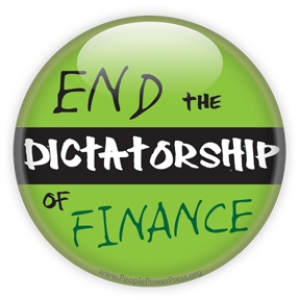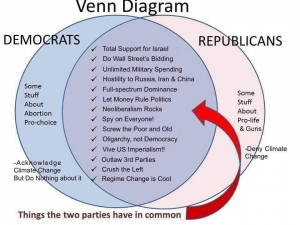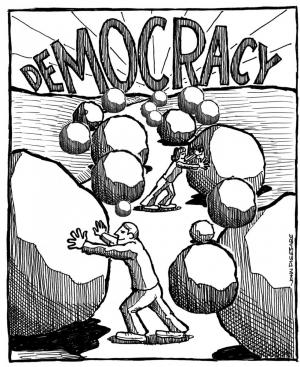Social Credit political theory readily grants what lies, perhaps, at the root of the democratic urge and which accounts, in large measure, for the popular appeal of ‘democracy’: firstly, that governments should serve the common good of the people and secondly, if governments don’t serve the common good of the people in an effective, efficient, and fair manner, the people who are affected should have the ability to sanction the government so that the quality of government might immediately improve.
At the same time, Douglas was highly critical of the conventional ‘democracies’ that have come to characterize the Liberal West, often describing them as ‘ineffective’. Not only did they fail to serve the common good to the extent that this was physically possible and desirable, they also failed to provide the people with an effective vehicle for remedying this sorry state of affairs. To make matters worse, it was not uncommon for ‘democratic’ governments to impose policies on the population which were contrary to the general will of the population. That is to say, we have been regularly treated to the spectacle of ‘democratic’ governments, so-called, introducing policies that are ‘anti-democratic’ in the deepest and truest sense of that word.













